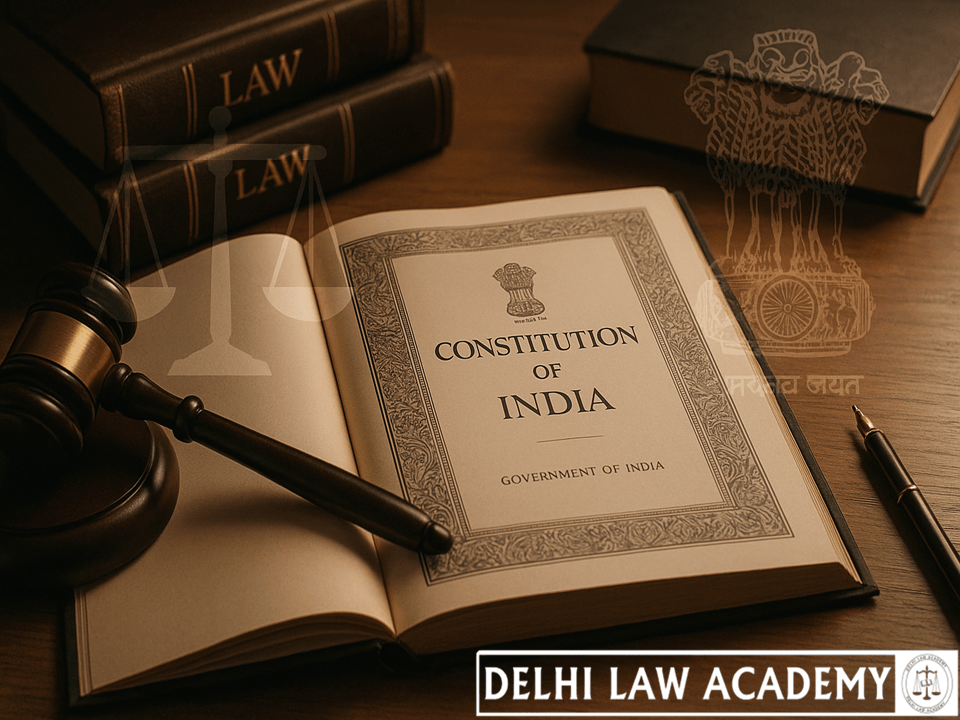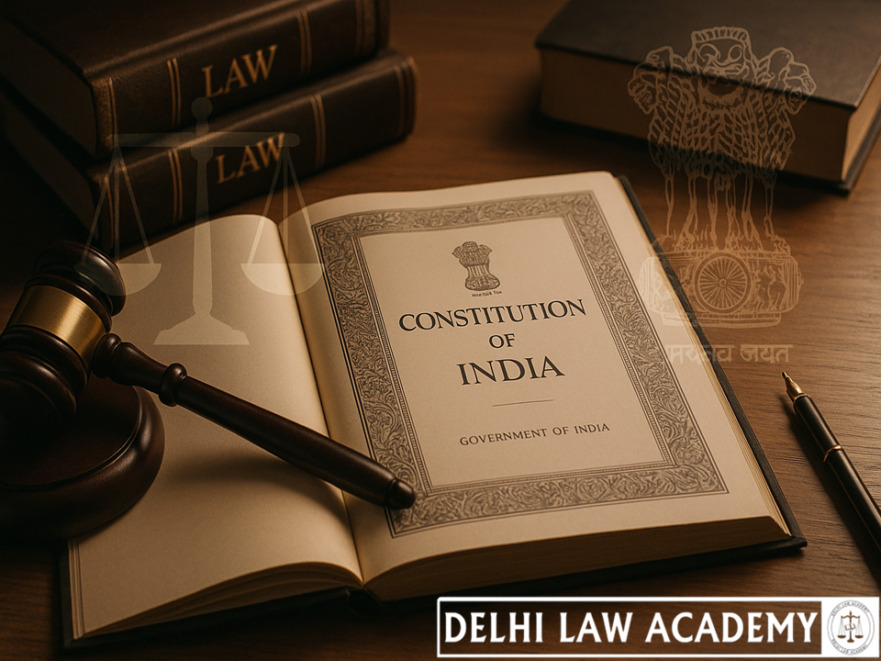
🏛️ Parliament (Articles 93–101)
Delhi Law Academy Jaipur — Notes for RJS, DJS, PCS(J) & Other Judicial Services
📘 Officers of Lok Sabha — Articles 93 to 96
- Article 93: Lok Sabha shall choose one of its members as Speaker and another as Deputy Speaker when these offices become vacant.
- Article 94: Removal of Speaker or Deputy Speaker by a resolution of the House, passed by a majority of all the then members.
- On dissolution of the House, the Speaker continues in office until immediately before the first meeting of the new House.
- Article 95: In absence or vacancy of the Speaker, duties are performed by the Deputy Speaker, or if vacant, by a member appointed by the President.
- When both are absent, duties are performed by a person determined by the House as per rules.
- Article 96: During removal proceedings, the Speaker shall not preside though he may participate and vote only in the first instance, not in case of equality.
Key Point: Articles 93–96 ensure continuity and stability in the presiding leadership of the Lok Sabha even during vacancies or dissolution.
💰 Salaries of Officers — Article 97
Parliament determines by law the salaries and allowances of:
- Chairman and Deputy Chairman of Rajya Sabha
- Speaker and Deputy Speaker of Lok Sabha
🏢 Secretariat of Parliament — Article 98
- Each House shall have a separate secretarial staff.
- Parliament regulates recruitment and service conditions of such staff by law.
🪶 Oath by Members — Article 99
- Every member must make an oath or affirmation before taking seat.
- Oath to be made before the President or a person appointed by him.
🗳️ Voting in Houses — Article 100
- All questions in either House or in a joint sitting are decided by majority of members present and voting (excluding presiding officer).
- Casting Vote: Speaker or Chairman votes only in case of equality of votes.
- Validity: Proceedings remain valid even if a person not entitled to vote has done so.
- Quorum: One-tenth of total members; ensuring quorum is the responsibility of the presiding officer.
🪑 Vacation of Seats — Article 101
- No person shall be a member of both Houses.
- If chosen for both, he must vacate one seat as per law made by Parliament.
- No person shall be a member of both Parliament and State Legislature. If chosen for both, he must resign from one within the prescribed period (14 days).
- A seat becomes vacant if:
- The member is disqualified under Article 102.
- The member resigns (accepted only if genuine and voluntary).
- The member is absent without permission for 60 days (excluding adjourned/prorogued periods).
📜 Related Provisions — Representation of the People Act, 1951
- Section 68: If a person is chosen for both Houses, he must intimate within 10 days which House he wishes to serve, else his Rajya Sabha seat is vacated.
- Section 69: If a member of one House is elected to the other, his seat in the first House becomes vacant on the date of such election.
- Section 70: If elected to multiple seats in the same House, all seats are vacated unless he resigns all but one seat in writing within prescribed time.
📚 For more Constitution & Polity Notes, visit
Delhi Law Academy Jaipur
📘 Stay Ahead with Delhi Law Academy!
Get access to free monthly current affairs, read our insightful blogs,
and explore free study resources prepared by experts at DLA Jaipur. 🚀
❓ Frequently Asked Questions on Parliament (Articles 93–101)
🗳️ Who elects the Speaker and Deputy Speaker of the Lok Sabha?
+
+
The Lok Sabha elects both the Speaker and Deputy Speaker from among its members under Article 93. The election is conducted whenever these offices become vacant.
⚖️ What is the procedure for removing the Speaker or Deputy Speaker?
+
+
As per Article 94, the Speaker or Deputy Speaker can be removed by a resolution of the House passed by a majority of all the then members. A 14-day notice is generally required before moving the resolution.
📜 What is the quorum required to conduct business in Parliament?
+
+
Article 100 prescribes that the quorum shall be one-tenth of the total number of members of the House. It is the responsibility of the presiding officer to ensure quorum during proceedings.
🪑 What happens if a member is absent without permission from Parliament?
+
+
Under Article 101(4), a seat may be declared vacant if a member is absent without permission for 60 days. However, periods of adjournment or prorogation exceeding four days are excluded from this count.
📖 Can a person be a member of both Houses of Parliament at the same time?
+
+
No. Article 101(1) clearly prohibits dual membership. If a person is elected to both Houses, they must vacate one seat as per the procedure laid down by Parliament in the Representation of the People Act, 1951.
🧾 Who fixes the salaries of the Speaker, Deputy Speaker, and other presiding officers?
+
+
Article 97 states that the salaries and allowances of the Speaker, Deputy Speaker, Chairman, and Deputy Chairman are determined by Parliament through law.
Contact us
📍 Delhi Law Academy – Jaipur Branch
6C, Tower 2, Coaching Hub, Pratap Nagar, Jaipur – 302033
📞 Phone:
+91 9911916552
+91 8447285606
✉️ Email:
contactus@delhilawacademy.com

